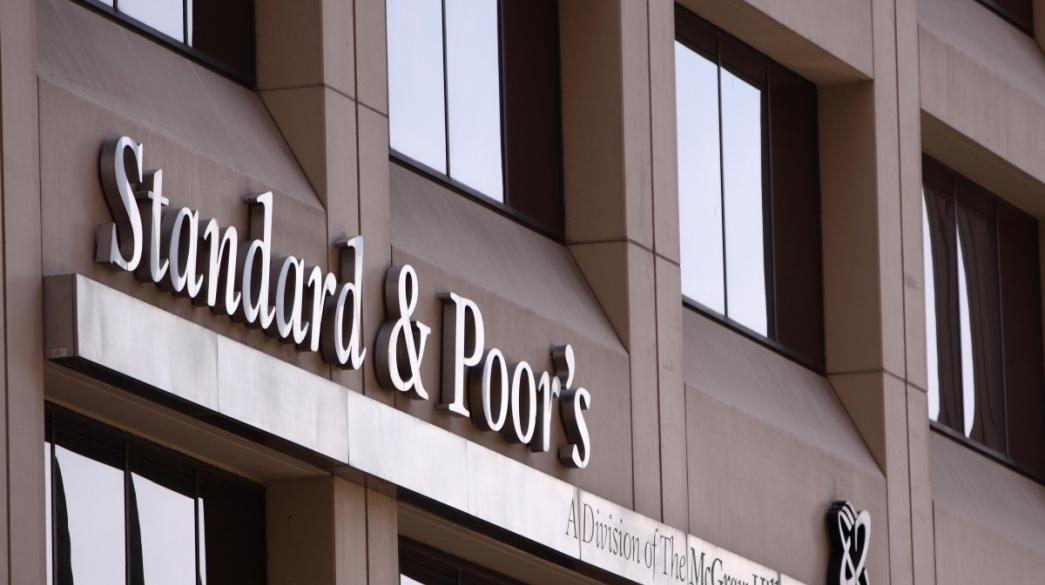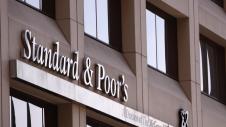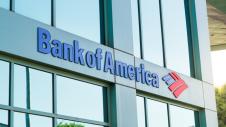By the end of 2021 the global banking system will face its toughest test since the 2009 crisis due to the pandemic, Standard & Poor's
points out, estimating that the credit losses for the period will reach $2.1 trillion. In this context, S&P predicts that Greek banks will be burdened with additional credit losses corresponding to 1.5% - 2% of their assets, but from 2021 they will return to profitability and will proceed with the faster consolidation of their portfolios.
In its annual global bank report titled "Global Banks Country-By-Country 2021 Outlook: Toughest Test For Banks Since 2009", the credit rating agency notes that the pandemic hit the banks while they were in a delayed recovery phase and stresses that:
- Government measures to curb the epidemic have halted the dynamics of the economy and banks.
- The global economic slowdown and its impact on Greece's tourism and services sectors may lead to new inflows of non-performing loans, although banks have already liquidated some of their problem loans with the support of some government initiatives, referring to the Hercules plan.
- The pandemic will temporarily prevent banks from boosting their already precarious profitability and improving asset quality and further diversifying their sources of funding.
In pointing out the risks faced by the Greek banking system, S&P notes that further weakening of the financial outlook could lead to new non-performing exposures (NPEs) that will exceed the company's forecasts, or delay the planned sales of NPEs and non-core assets. This could increase additional costs for lenders, mainly by causing a reduction in capital from loan sales, which would force the banks to reduce the planned securitizations. The additional costs from loan sales would be particularly harmful to banks with limited capital reserves.
The pace of economic recovery will be particularly important, especially in terms of real estate market performance and unemployment levels. These factors will determine the rate at which new non-performing loans are generated, the price and demand for upcoming NPE securitizations, the prospects for recovering mortgages backed by real estate, and the receipts of non-performing loan companies.
A positive element in the S&P analysis is that the financing risks of banks remain extremely low. Deposits continued to rise, despite the abolition of capital controls, reflecting increased confidence in the banking system. In addition, the European Central Bank's emergency bond purchase program, launched in March 2020, allows for the purchase of Greek public debt.
In its forecast for the economy, S&P appears relatively optimistic, predicting that GDP will shrink by 9% this year and will recover by 6.8% in 2021 (it is noted that these forecasts have been made without calculating the impact of new lockdown). The recession is mainly due to the impact of the pandemic on trade and tourism, travel and construction.
Banks' credit losses in the two years 2020 - 2021 are estimated to range between 160 - 200 basis points (1.5% to 2% of assets). This
higher risk cost, which does not include lump sums from loan securitizations, combined with the limited prospects for loan growth will put pressure on banks profits and already weak capital formation.
The balance of loans will continue to decline due to write-offs and NPE sales. However, net interest margin margins will remain resilient despite the pandemic, as S&P points out that Greek banks retain access to the ECB's long-term refinancing lines on attractive terms.
The key to progress for banks will be the pace of new loan disbursements. S&P does not expect strong loan growth in the first half of 2020 to continue in the second half of the year. For Greek banks, the resumption of lending is of particular importance, as the quality of their capital and profits remains weaker, after years of weakening interest income and commissions.
Particularly important will be the impact of the pandemic on the creditworthiness of the private sector and the real estate market. Foreign investment largely determines the prices of Greek real estate, which had risen just before the pandemic, after falling by about 40% since 2008, according to S&P. The effects of the pandemic will determine the rate at which banks issue securities, as well as the solvency of indebted households whose net worth has become negative over the years.








